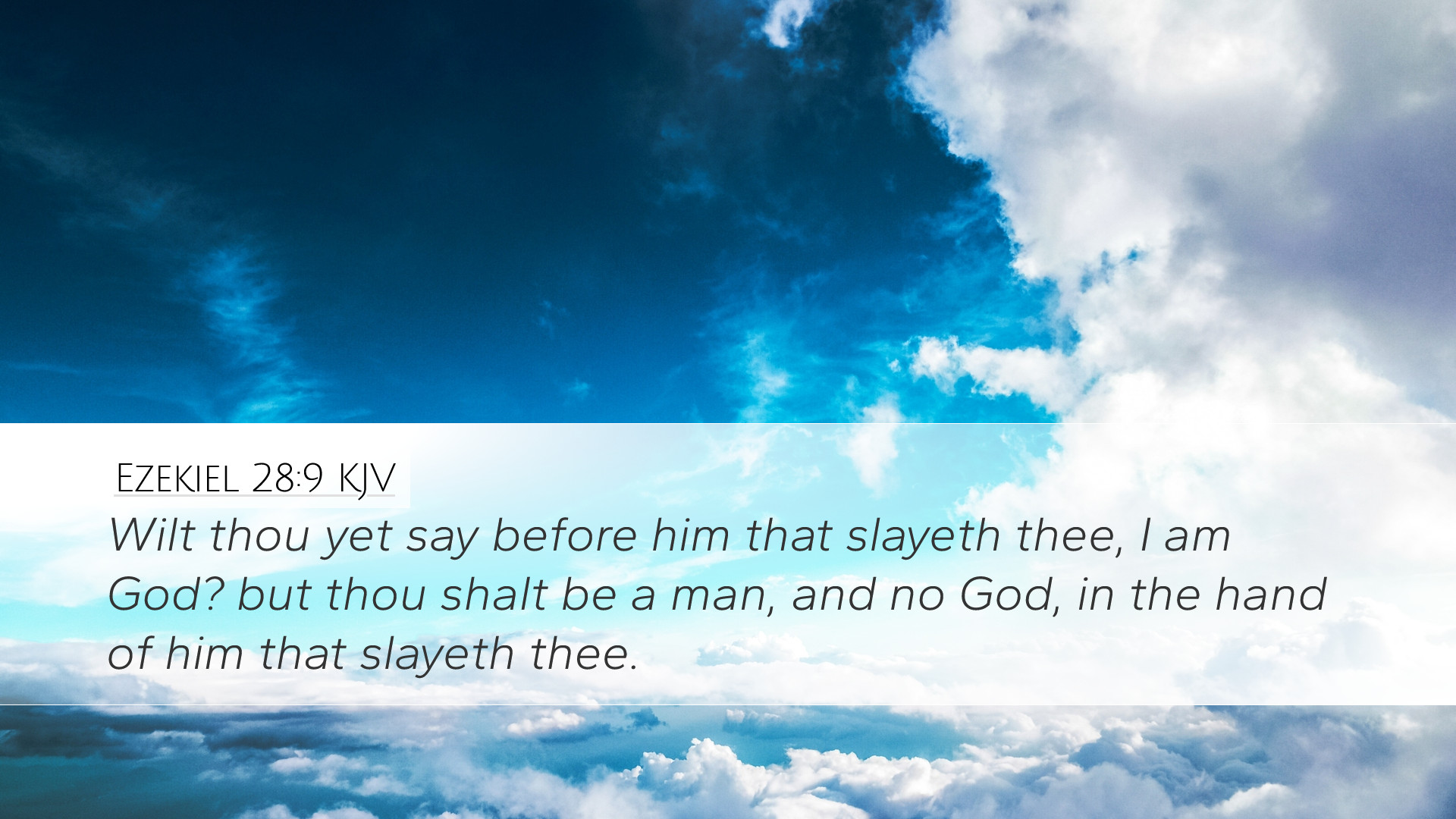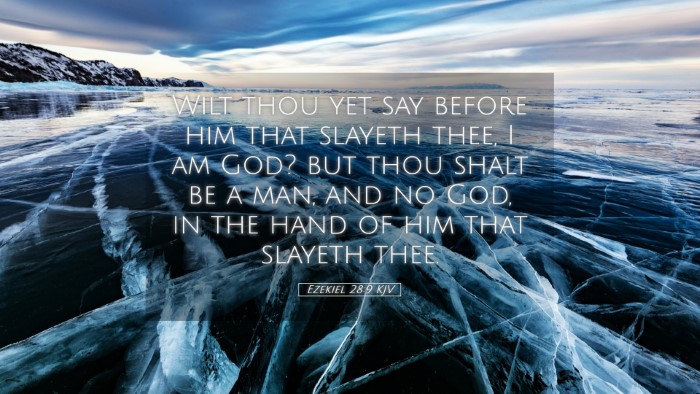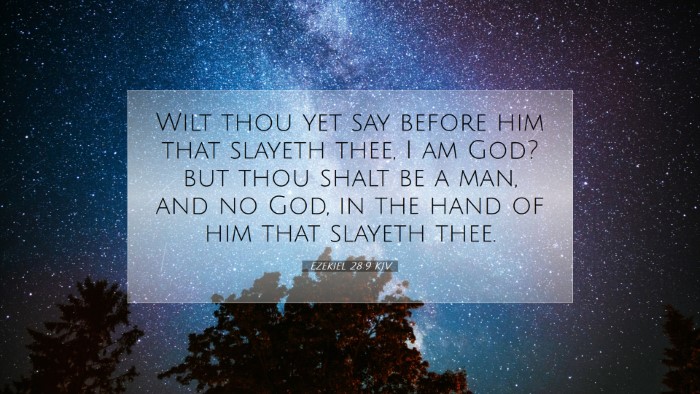Ezekiel 28:9 - Commentary Overview
Ezekiel 28:9 states: "Will you still say, ‘I am a god,’ in the presence of those who kill you? You will be but a man, not a god, in the hands of those who slay you." This verse serves as a profound declaration to the King of Tyre, symbolizing pride and the ultimate downfall associated with it. The following commentary combines insights from notable public domain scholars to explore the theological and practical implications of this passage.
Contextual Background
In Ezekiel chapters 26-28, the prophetic messages shift focus from Tyre's historical downfall to a personalized address to the King of Tyre, symbolizing the pride of the earthly rulers set against God. The context reveals not only a critique of human arrogance but also a profound theological commentary on the nature of divinity versus humanity.
Matthew Henry's Insight
Matthew Henry highlights the arrogance of the King of Tyre, who positioned himself as a god among men, emphasizing the futility of such self-exaltation in the face of divine sovereignty. He notes that:
- The King’s self-deification will not shield him from judgment.
- The assertion of being a god often leads to spiritual blindness and eventual ruin.
Henry emphasizes the gravity of reliance on human power. He writes, "It is a vain thing for any man to think he can contend with God." This illustrates the theme of divine justice versus human pride.
Albert Barnes' Observation
Albert Barnes provides a discerning look at the language of the verse. He points out the rhetorical questions posed by God, which challenge the King’s inflated self-image. Barnes elaborates by stating:
- God’s questioning serves to strip the King of any false notions of deity and supremacy.
- The acknowledgment of mortality as a human condition is pivotal; no matter the position, everyone ultimately answers to God.
According to Barnes, the passage culminates in the stark contrast between man and God, reinforcing that ultimate power lies solely with the Creator.
Adam Clarke's Interpretation
Adam Clarke adds depth by discussing the historical implications for Tyre and its leadership. He mentions:
- The King of Tyre is not only referenced in a historical context but is symbolic of the adversarial forces against God's people.
- The assertion of divinity by anyone—be it a king or ruler—is met with divine counterclaim.
Clarke asserts, "No matter how high one ascends in power or influence, all are ultimately subject to the judgment of God." This highlights the unavoidable truth of human vulnerability.
Theological Implications
The theological implications of Ezekiel 28:9 extend beyond its immediate context. The statement suggests a shift from self-aggrandizement to recognition of God’s sovereignty. The following themes emerge:
- The Nature of God’s Sovereignty: The verse underscores that all authority is derived from God and that human attempts to usurp this authority leads to disastrous outcomes.
- The Fall of Pride: Reflecting on the historical pride of rulers, this passage serves as a warning against human arrogance, encouraging humility and repentance.
- The Reality of Judgment: It portrays the inevitability of divine judgment upon those who exalt themselves against God.
Practical Applications for Today
For pastors, students, and theologians, this verse provides numerous practical applications:
- Humility in Leadership: Church leaders are reminded of the need for humility in their roles, recognizing that leadership is a stewardship rather than an exercise of personal authority.
- Encouragement for the Oppressed: The oppressed and marginalized can draw strength from the assurance that God will ultimately vindicate justice against worldly arrogance.
- Personal Reflection: Individuals are encouraged to examine their own hearts for pride, acknowledging that true elevation comes through servanthood and not through self-exaltation.
Conclusion
Ezekiel 28:9 presents a powerful reminder of the consequences of pride and the affirmation of God’s ultimate authority. The insights from Matthew Henry, Albert Barnes, and Adam Clarke converge to provide a robust understanding of this text, offering timeless truths relevant to the church today. The nuances of this verse call believers to recognize the danger of self-deification while encouraging a humble and reverent relationship with the true and living God.


